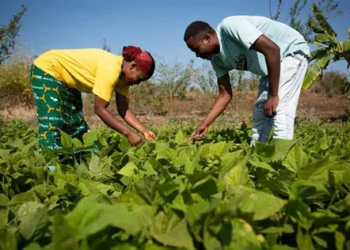OPINION
Uganda has witnessed remarkable economic growth and holds great promise for the future, however a midst this progress, there is one vital aspect that remains untapped which is youth unemployment. Currently Uganda’s youth unemployment rate according to Uganda bureau of Statistics (UBOS) 2024 report, stands at 16 percent among those aged 15 to 30. A recent report from the National Planning Authority (NPA) in 2023 revealed that 4.2 million youths in Uganda are ‘Neither in Employment, Education nor Training and the number is projected to increase to 5.8 million in 2031/32 if nothing changes.
Last week, the media reported that 81,000 job seekers are scrambling for only 280 government jobs. According to UBOS, Uganda has one of the youngest populations in the world with more than 75% of its populace under 30 years old. According to the world bank, an estimated 600, 000 young people enter the labour market, yet the economy creates only about 80,000 formal jobs leaving the vast majority either un employed or underemployed. This has forced many young people to go and work under harsh conditions in United Arab Emirates (UAE) and the neighboring countries of Oman, Bahrain, Kuwait among others.
Early this week, the media also reported that each year, thousands of Ugandan youth head to middle East seeking for better opportunities, driven by the increase of unemployment in the country which has given the recruitment agencies a chance to persuade many young Ugandans to Arab Emirates, often under premises of routine, regular jobs only to find themselves trapped in violent and coercive sex work. This has put many youth working in the middle East in danger and led some of them to death. This follows the trending story of one of the women called Monica Karungi, who went to Dubai for work and change her life but sadly ended up losing her life from there.
Despite the government’s youth employment programs and initiatives such as the Youth Livelihood Programme (YLP), Uganda Women Empowerment Programme (UWEP), Presidential Initiative on Skilling the Girl Child, Youth Apprenticeship Program, Youth Inspiring Youth in Agriculture Initiative (YIYA), The Parish Development Model (PDM), Young Africa Works and the Uganda Youth Venture Capital Fund among others to minimize youth unemployment in the country, a significant number of youths continue to struggle to secure jobs or create their own opportunities.
According to the study conducted by the International Labour Organization (ILO) in 2018, the agricultural sector has the capacity to create jobs for millions of young people, contributing to poverty reduction and sustainable development. It is therefore imperative to transform the sector and empower more youth in agricultural sector which remains the backbone of many economies and the largest employer of Uganda’s population (more than 70%). This will not only reduce human trafficking and youth unemployment but also contributes to food security, economic growth and sustainable development in the long run by providing support and incentives for youth to engage in farming or related agribusinesses since agriculture has the potential to create a significant number of jobs.
This can be done through providing youth with trainings in modern practices and access to finance through loans and grants. Foster interest through educational programs and mentorship. Incorporate technology to attract tech-savvy youth and enhance productivity while supporting practical initiatives like agribusiness parks and community gardens.
By Olive Atuhaire,
The Writer is a Researcher Associate – AFIEGO
oliveatuhaire63@gmail.com








































